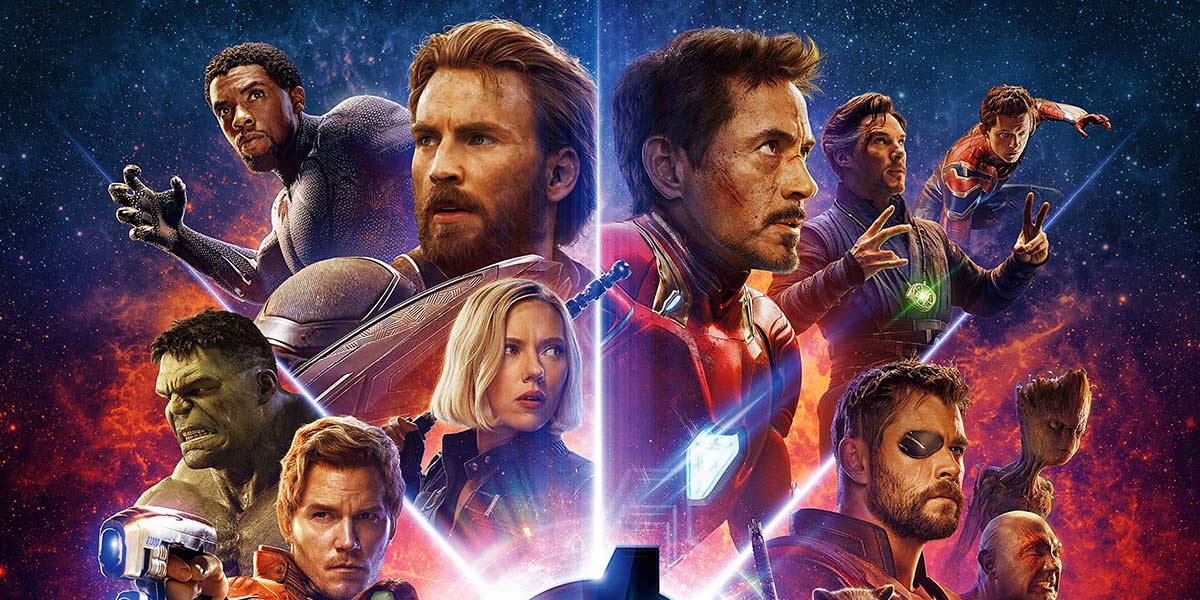Screenwriting partners Christopher Markus and Stephen McFeely work in what they describe as the “best place in town.” They mean, Marvel Studios in Los Angeles, and they have a rare seat at the table of one of Hollywood’s biggest empires. The writers have become go-to Marvel writers, practically the in-house crew. Starting with “Captain America: The First Avenger” in 2011, they’ve written every Cap movie (‘Winter Soldier,’ ‘Civil War’), “Thor: The Dark World,” wrote on ABC’s “Agent Carter,” were reportedly behind some “Ant-Man” rewrites (uncredited) and were given one of the most prestigious tasks on the planet: writing one of the biggest movies of all time “Avengers Infinity War” and the ‘Untitled Avengers 4‘ movie that will arrive in 2019.
The two writers wrote both films at once and despite Marvel thought as being a machine that writes by committee, Markus and McFeely say they have tremendous freedom and that’s why they continue to work at Marvel. Though they may not be with Marvel for Phase 4. They’re joining the Russo brothers for their new studio and that could keep them busy for the next few years—we’ll see. On the eve of “Avengers Infinity War” release, I spoke to the writers by phone about Marvel’s gargantuan endeavors and the challenges of pulling off such a feat.
‘Civil War,’ with its ideas of government oversight, accountability, heroes viewed as vigilantes unchecked and the moral ideologies that divide them is really political. Will we see the ramifications of that film in ‘Infinity War’?
Stephen McFeely: Yes, we’re trying to honor all the films that came before, particularly the ones we wrote, so Thanos is coming at a very inconvenient time because of what happened at the end of ‘Civil War’
The team is spiritually broken and splintered at the end of the movie and that hasn’t been explored yet in any of the subsequent films. Do you deal with that emotionally before Thanos comes?
SF: Actually, no. That division is still status quo when he shows up. Whether they deal with or don’t deal with it, you know, you have to watch the movie, yeah, but that’s what’s happening.
The Captain America movies are the heart of the MCU and you’ve written all of them. Lately, the films center on the ideas of what it means hero and the negotiation of trying to be a hero in our complex modern world. What themes are you playing with now?
SF: Yeah, one of the themes we play with is, what is the cost of heroism? And does your personal outweigh your duty? And that could be said for a number of the movies, but none more… certainly this is to the nth degree.
Christopher Markus: What are you willing to sacrifice for what you think is right? We’ve talked about this a lot, but as a tangent, you are the architect of your destiny. So, Thanos thinks that he’s the only one that can rebuild the universe and the Avengers are the only ones that think they can save it and something’s got to give.
Speaking of architects, you guys have written so many of these Marvel movies, you’re almost like the in-house writers of the MCU. Are you guys in every story meeting? How involved are you in the other films? Do you need to be there for everything?
SF: No, no, it doesn’t really work that way. Thank you, we really love our contribution to these films, but you know, Peyton Reed and his team are doing “Ant-Man & The Wasp” and we’ve had very little to do with that. Ana Boden and Ryan Fleck are doing “Captain Marvel” and we’ve had very little to do with that too. What happens is, once outlines of scripts get further along, anyone that needs that information, you’ll get to see that stuff and that usually happens with the producers. Like, we had Trinh Tran and “Black Panther” had Nate Moore and they would talk. Like that. So, this is unique in that we needed to know a lot about a lot of other movies, but in general, filmmakers get to make the movie they want and there isn’t like a big 50-person meeting or anything.





